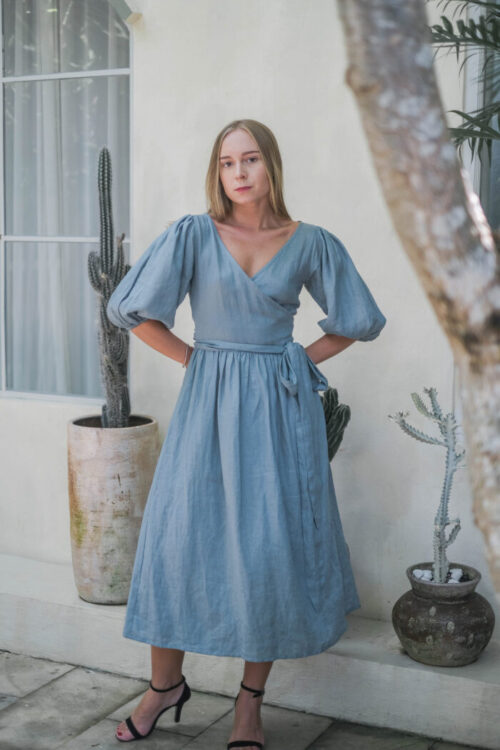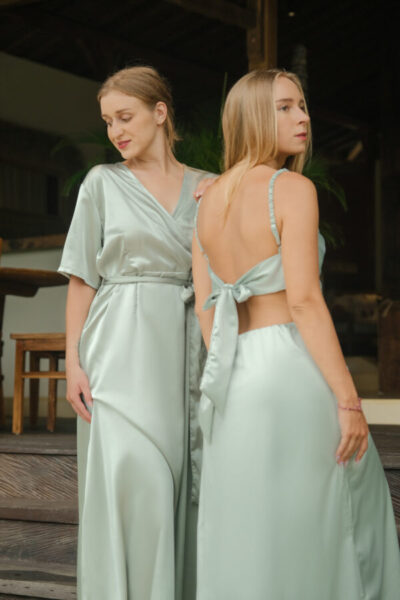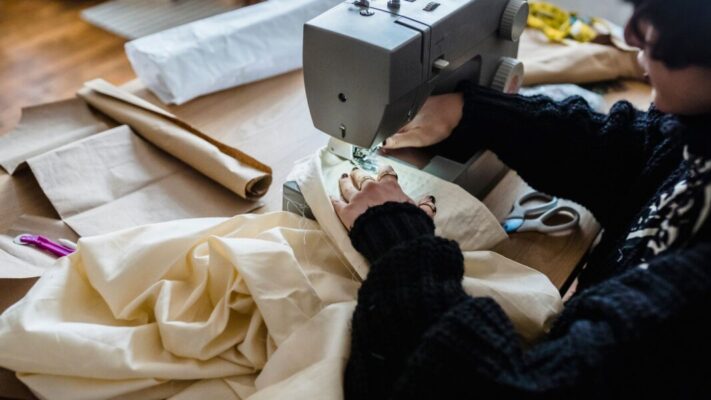What is Slow Fashion?
Slow fashion is an approach to fashion that emphasizes sustainability, ethical production, and mindfulness over fast-paced, mass-produced trends. It encourages consumers to buy higher-quality clothing made with environmentally friendly materials and crafted under fair labor conditions. The idea is to promote longer-lasting garments, reduce waste, and minimize the environmental impact of fashion production. Slow fashion advocates for fewer purchases, but ones that are more meaningful, durable, and ethically sourced, opposing the “fast fashion” industry’s focus on cheap, rapidly changing styles.
Slow fashion is a movement that promotes sustainability and ethics in the fashion industry. It encourages the production of high-quality, durable clothing made with environmentally friendly materials and under fair labor conditions. Unlike fast fashion, which focuses on cheap, rapidly changing trends, slow fashion values thoughtful consumption, longer-lasting garments, and a reduced environmental impact. It aims to minimize waste and support ethical practices throughout the supply chain, promoting a more mindful approach to fashion choices.
The implementation of slow fashion involves various strategies that address both the production process and consumer behavior. Here are some key aspects of how slow fashion is implemented:
1. Sustainable Materials
- Eco-Friendly Fabrics: Using organic, biodegradable, and recycled materials like organic cotton, hemp, linen, or recycled fibers.
- Low-Impact Dyes: Employing natural dyes or low-impact synthetic dyes that reduce water usage and pollution during the production process.
2. Ethical Production
- Fair Labor Practices: Ensuring workers are paid fair wages, have safe working conditions, and are not exploited. This often includes transparent supply chains and partnerships with ethical factories.
- Local Production: Reducing carbon footprints by producing garments closer to the point of sale, thereby cutting down on transportation emissions and supporting local economies.
3. Quality Over Quantity
- Durable Construction: Designing and producing clothes that are built to last, encouraging consumers to buy fewer, better-quality items that can be worn for years.
- Timeless Designs: Creating classic, versatile styles that don’t go out of fashion quickly, reducing the need for frequent purchases.
4. Slow Fashion Business Models
- Made-to-Order/Small Batch Production: Brands often produce smaller collections or make items to order, which reduces overproduction and waste.
- Upcycling and Recycling: Utilizing old fabrics or garments to create new clothing, turning waste into a resource.
5. Mindful Consumption
- Educating Consumers: Brands and movements promote awareness about the impact of fast fashion on the environment and labor practices, encouraging consumers to make thoughtful, conscious purchasing decisions.
- Repair and Care: Encouraging consumers to take care of their garments (e.g., repairing, tailoring, proper washing) to extend their lifespan.
6. Circular Fashion
- Clothing Rental and Resale: Encouraging sharing, renting, or buying second-hand clothing to minimize the demand for new clothing production.
- Take-Back Programs: Some brands offer programs where consumers can return old garments for recycling, repair, or resale.
7. Zero Waste Practices
- Minimal Waste Cutting Techniques: Implementing pattern-making techniques that minimize fabric waste during the cutting process.
- Biodegradable Packaging: Using eco-friendly packaging materials to reduce plastic waste.
8. Slow Fashion Certifications
- Third-Party Certifications: Many slow fashion brands work to obtain certifications such as Fair Trade, Global Organic Textile Standard (GOTS), and OEKO-TEX, which verify their commitment to sustainable and ethical practices.
9. Transparency
- Supply Chain Transparency: Many slow fashion brands provide full transparency regarding where and how their products are made, including the sourcing of materials and the conditions in which workers operate.
Implementing slow fashion requires a shift in mindset from both producers and consumers, focusing on long-term quality, ethics, and sustainability over short-term trends and disposable fashion.










